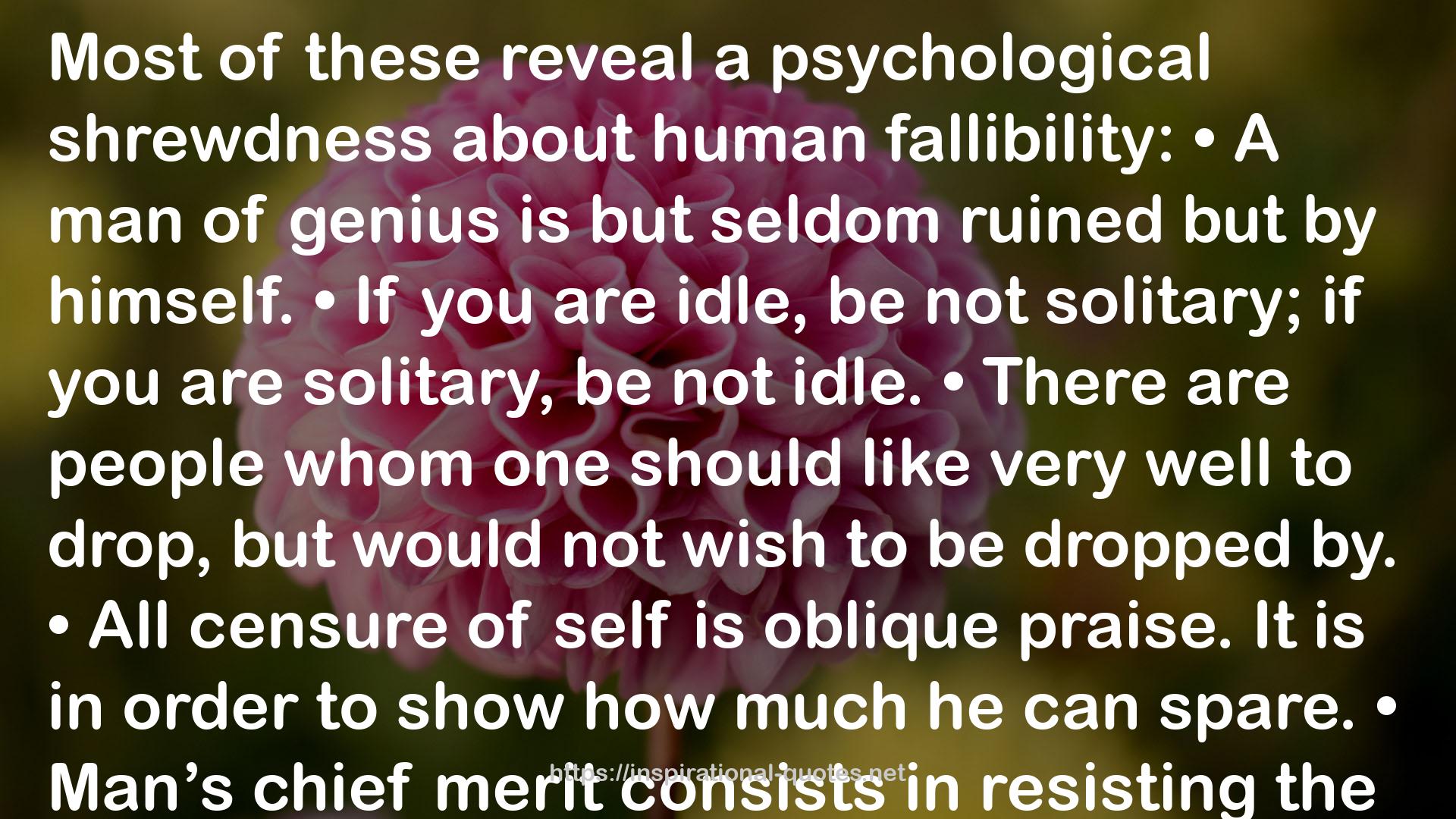" Most of these reveal a psychological shrewdness about human fallibility: • A man of genius is but seldom ruined but by himself. • If you are idle, be not solitary; if you are solitary, be not idle. • There are people whom one should like very well to drop, but would not wish to be dropped by. • All censure of self is oblique praise. It is in order to show how much he can spare. • Man’s chief merit consists in resisting the impulses of his nature. • No place affords a more striking conviction of the vanity of human hopes than a public library. • Very few can boast of hearts which they dare lay open to themselves. • Read over your compositions, and wherever you meet with a passage you think is particularly fine, strike it out. • Every man naturally persuades himself he can keep his resolutions; nor is he convinced of his imbecility but by length of time and frequency of experiment. Through his moral essays, Johnson was able to impose order on the world, to anchor his experiences in the stability of the truth. He had to still himself in order to achieve an objective perception of the world. When people are depressed, they often feel overcome by a comprehensive and yet hard to pin down sadness. But Johnson jumps directly into the pain, pins it down, dissects it, and partially disarms it. In his essay on sorrow he observes that most passions drive you to their own extinction. Hunger leads to eating and satiety, fear leads to flight, lust leads to sex. But sorrow is an exception. Sorrow doesn’t direct you toward its own cure. Sorrow builds upon sorrow. That’s because sorrow is “that state of mind in which our desires are fixed upon the past, without looking forward to the future, an incessant wish that something were otherwise than it has been, a tormenting and harassing want of some enjoyment or possession we have lost.” Many try to avoid sorrow by living timid lives. Many try to relieve sorrow by forcing themselves to go to social events. Johnson does not approve of these stratagems. Instead, he advises, “The safe and general antidote against sorrow is employment…. Sorrow is a kind of rust of the soul, which every new idea contributes in its passage to scour away. It is the putrefaction of stagnant life and is remedied by exercise and motion. "
― David Brooks , The Road to Character
